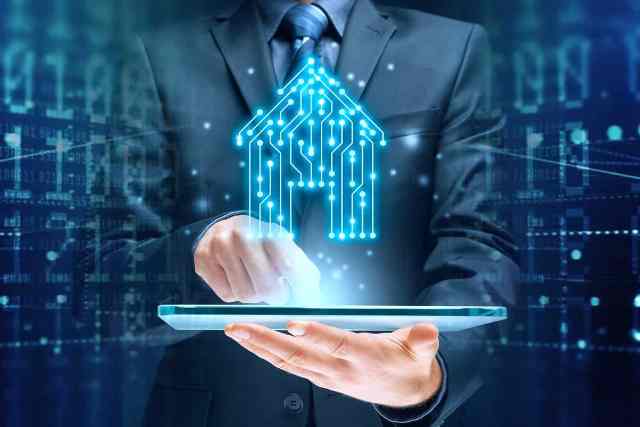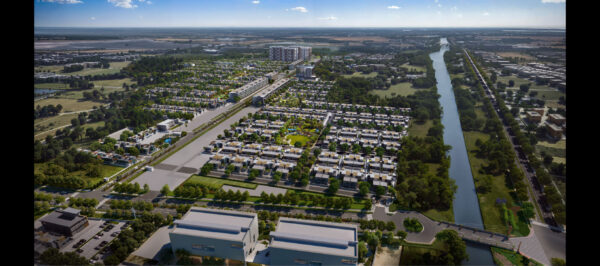PropTech aids realty growth
by Ajai A Kapoor, Founder and CEO, 360 Degrees – Real Estate Service
The pandemic literally speeded the adoption of new-age technologies by the realty sector and helped integrate different technologies into daily business tasks. This is true for many sectors and businesses, especially real estate.
Technology has already transformed the way we live our lives and interact with each other, as well as with products and companies. The retail sector was one of the first sectors to be transformed by technology. The advent and growth of e-commerce changed the way people buy products today. The finance (fintech) and education (edtech) sectors have also seen a lot of development and changes, thanks to the usage of technology.
All these sectors have seen a lot of investments and growth in the last few years. In fact, many of India’s first unicorns are in the fields of e-commerce, fintech, and edtech.
Proptech (a portmanteau of property and technology) refers to the use of technology to help individuals and companies research, buy, sell and manage property. PropTech uses digital innovation to address the needs of the realty sector in the same way fintech focuses on the use of technology in finance.
Although a relatively late starter, the proptech industry has witnessed exponential growth over the last few years.
New advents in proptech have truly disrupted the means and methods by which people engage with real estate today. PropTech is increasingly being used to improve such functions in the realty sector as project planning, marketing and sales, property search, finance management, customer relationship management (CRM), construction management, and asset and facility management.
The following are some types of proptech making waves now:
Residential proptech
Residential proptech covers various digital technologies, tools and apps that facilitate the way people own or rent properties like apartments, flats, row houses, bungalows, villas, and the like. This kind of proptech covers:
- Property search platforms, eg, listing websites and marketplaces, broker apps, CRM, lead management tools, etc.
- Property sale tools (digital payment gateways, digital contracts, online tax payments, auto invoice generation, etc.)
- Financing tools (digital loans, alternative financing, online credit scoring, etc)
- Home loan software (loan application and management tools)
- Real estate transaction management tools (insurance and transaction management)
- IoT-based property management tools
CRETech
CRETech stands for commercial real estate (CRE) technology. This covers all the innovative tools and apps that companies and individuals use to efficiently search, shortlist, view, rent, and sell various kinds of properties, from commercial to industrial to retail. It includes:
- Property search platforms, eg, listing websites & marketplaces, broker apps, CRM, lead management tools, etc.
- Construction planning & management tools
- Evaluation and financing tools (transaction underwriting andmanagement, debt financing platforms, etc.)
- IoT-based property management tools
- Asset utilization and optimisation tools (co-working andco-living spacemanagement, retailandindustrial building management, etc.)
Disruption caused by proptech has resulted in great innovation on the daily tasks of participants and players in the realty sector. It makes life easy and efficient for developers, buyers, sellers, owners, tenants, investors, brokers, marketers, architects, designers, and more.
For a broker, the adoption of proptech solutions leads to
- Easier and more efficient property supply management
- Wider reach of lead generation and better lead tracking, thus tightening demand management
- Faster sharing of projects with the leads generated
- Tighter control of the lead funnel
- Better customer relationship management, using the latest tools for quicker documentation of contracts and more
For a landlord or owner, the adoption of proptech solutions helps with
- Easier tenant management
- Better property control using IoT-based technologies
- Better property security using CCTVs, sensors, etc
- Easier communication with tenants and vendors (for property management)
- Easier vendor management for home maintenance
- Easier bill payments & tracking
For a developer, the adoption of proptech solutions helps with
- Improved research for deciding the right project for a market
- Accurate construction planning
- Efficient marketing using digital tools
- Better channel partner management for faster sales
- Better customer management using CRM tools, ensuring repeat purchase
For a buyer, the adoption of proptech solutions helps with
- Easy sourcing, searching, and filtering out of property options based on the buyer’s need
- Quicker and direct access with sellers and owners
- Access to complementary services required for the purchase
- Detailed comparison with similar properties in the neighbourhood
- Data-based analysis of market rates and trends
Technology Trends
Proptech is evolving fast and various startups are continuously working on newer apps and tools using new-age technologies like artificial intelligence, machine learning, drones, virtual reality, IoT, web3, and so forth.
Here are six trends that are shaping the future of proptech:
Blockchain
Real Estate is the world’s largest asset class, and blockchain technology has the potential to transform the way data is stored and retrieved for real estate transactions. Blockchain technology is increasingly being used for smart contracts; tokenisation of assets; making and tracking payments; recording of property ownership; fractional property ownership; and more.
Big data and digitalisation of property data assets
Big Data is about collecting and analysing historical and real-time data. It covers just about all kinds of datasets, from residential properties to large corporate buildings. With structured datasets, usage of Big Data, coupled with digitisation and machine learning technologies, can come up with accurate insights on pricing, homevalue trends, and even potential risk-and-failure scenarios for an upcoming project.
AI and machine learning for automation of back-office processes
While Big Data in Real Estate is about structuring large amounts of data, AI and machine learning help to make it more useable and actionable. From accurate search predictions to auto-generating personalised email sequences for customers based on their life events, AI makes tedious tasks easier and faster for all. AI is currently being used to predict customer preferences and behaviour, enabling sharper targeting of relevant real estate products and thereby achieving faster sales.
Virtual reality for online search and improved home-buying experience
Virtual reality will be at the top of proptech disruption by 2025, with an estimated 1.4 million realtors set to depend on the technology by that time. The application of VR on real estate may vary, from virtual tours of properties to augmented reality solutions for digitally adding furniture to existing interiors. Slowly and steadily, VR is becoming an integral part of experiential real estate sales and is here to stay. With the growth of the metaverse, and the real estate-related areas therein, VR is expected to become a way of life for anyone who is a stakeholder in the real estate industry.
Internet of Things (IoT) for predictive maintenance
Internet of Things (IoT) refers to a smart network of devices with sensors that are constantly sending and receiving data about a property or a building to track its overall state and even predict failures and determine risks. For example, property owners can monitor a property’s temperature, security, and maintenance through mobile devices and computers. They can even set triggers on the basis of pre-defined parameters.
New construction technologies that drive sustainability
As we adopt new ways of green construction, focused on building sustainable, energy-efficient homes, modern appliances are getting smarter, too, with solar heaters, smart-grid refrigerators, washing machines, dishwashers, and microwave ovens being interconnected to our phones and homes, often resulting in energy savings.
In sum, technology has become an integral part of the realty sector and is continuously changing the way business is done by improving processes and making them more efficient. Proptech is helping stakeholders in the realty sector collaborate seamlessly and smoothly, ensuring increased productivity for all.
















